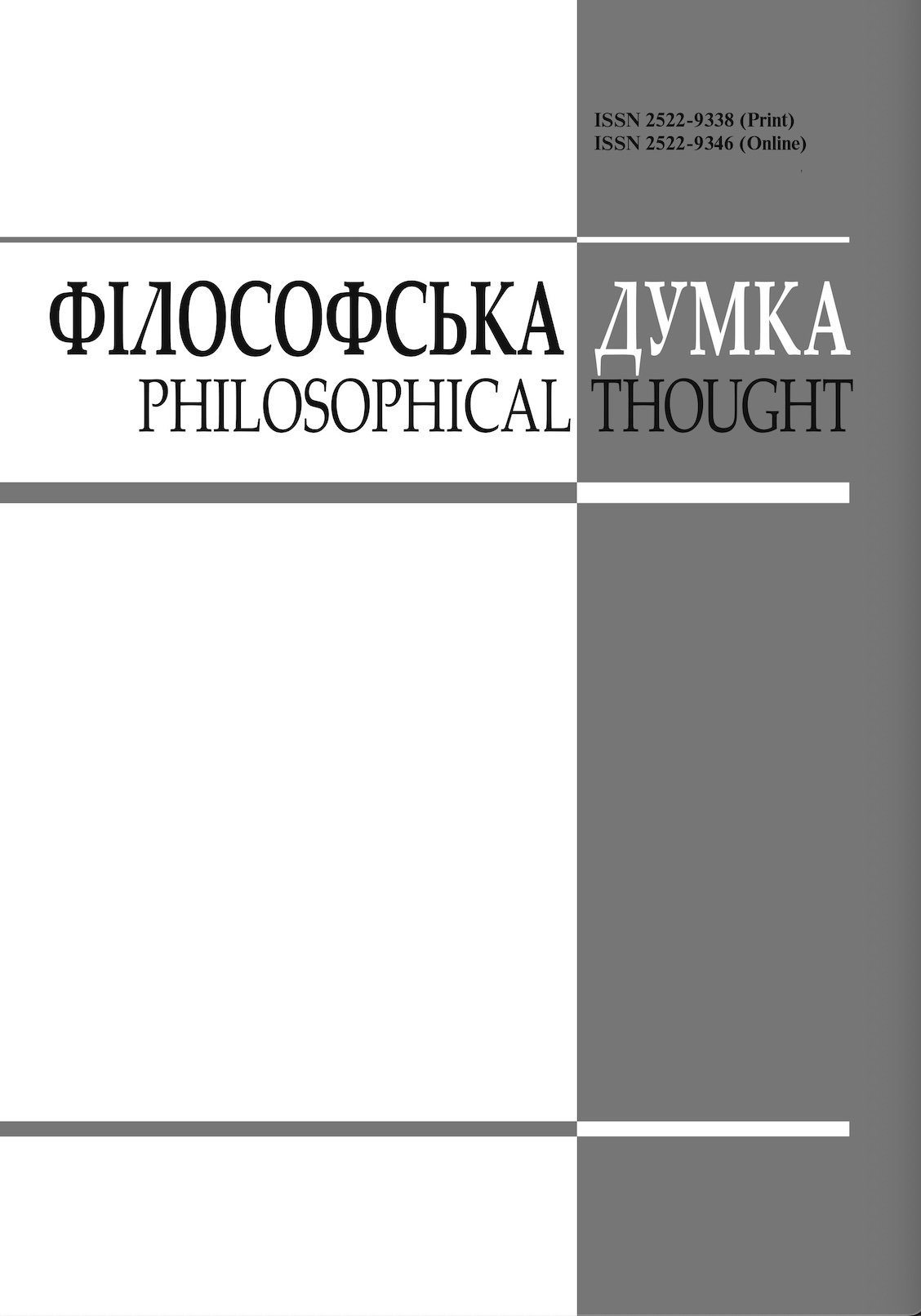Identity, community, and political judgment
Keywords:
identity, life-world, political judgment, cosmopolitanism, community, reification, being-possibilityAbstract
Is it possible to provide a “philosophical reduction” of extensively proliferating interpretations of the phenomenon of identity in humanities? Could the concept of ethno-cultural form of life serve as the end socio-anthropological correlate of its philosophical understanding through the notions of life-world, culture, a person of culture? Interpreting E. Ericson’s, A. Sen’s, K.A. Appiah’s, A. Maalouf’s, N. Sharansky’s and some other ideas the article responds in a positive way to the raised questions. At the same time it critisizes a trend of applying cosmopolitan view on the globalization process (A. Sen, J. Habermas) to analysis of the “end grounds” of the identity. The author refers to deliberated hermeneutical study of the “communitas” (Lat.) done by R. Esposito to join his conclusion on “no-thingness” of the “essence” or “communality” of community as identity of a collective subject. Using generalizations of B. Anderson as to “emagined nations” the author develops the view on identity as a way of being in terms of being-possibility, as well as through M. Heidegger's concept of ontological difference. Methodologically, such an approach can help to criticize various forms of reificationistic approaches in political judgments and in everyday life, i.e., under discriminating interpretations of identity through indication of the “negative features of national character”, biased reduction of communities and individuals to their bio-anthropological characteristics, etc.
References
Бистрицький Є. Філософський образ культури і світ національного буття // Феномен української культури: методологічні засади осягнення. — Київ, 1996.
Быстрицкий Е. Конфликт культур и методология толерантности // Вопросы философии. — Москва, 2011. — № 9.
Гібернау М. Ідентичність націй. — Київ, 2012.
Донскіс Л. Збентежена ідентичність і сучасний світ. — Київ, 2010.
Хайдеггер М. Вещь и творение // М. Хайдеггер. Работы и размышления разных лет. — Москва, 1993.
Appiah K.A. The Ethics of Identity. — Princeton, NJ, 2005.
Arendt H. Responsibility and Judgment / Ed. by J. Kohn. — New York, 2003.
Arendt H. The Promise of Politics / Ed. by J. Kohn. — New York, 2005.
Esposito R. Communitas. The Origin and Destiny of Community. — Stanford University Press, 2010.
Gilbert P. Cultural Identity and Political Ethics. — Edinburgh University Press, 2010.
Habermas J. The Crisis of European Union. A Response. Polity Press. — Cambridge, 2012.
Heidegger M. The Basic Problems of Phenomenology / Transl. by A. Hofstadter. Revised Edition. — Indiana University Press, 1988.
Appiah K.A. Cosmopolitanism. Ethics in a World of Strangers. — New York; London, 2006.
Maalouf A. In the Name of Identity. Violence and the Need to Belong. London, 2000.
Multiculturalism and “The Politics of Recognition”. An Essay by Charles Taylor. — Princeton; Oxford, 1992.
Sen A. Identity and Violence. The Illusion of Destiny. — New York, 2006.
Sharansky N. Defending Identity. Its Indispensable Role in Protecting Democracy. Public Affairs. — New York, 2008.
Taylor Ch. Philosophical Arguments. — Cambridge; London, 1997.
Downloads
-
PDF (Українська)
Downloads: 269
Published
How to Cite
Issue
Section
License
Authors who publish with this journal agree to the following terms:
- Authors retain copyright and grant the journal right of first publication.
- Authors are able to enter into separate, additional contractual arrangements for the non-exclusive distribution of the journal's published version of the work (e.g., post it to an institutional repository or publish it in a book), with an acknowledgement of its initial publication in this journal.
- Authors are permitted and encouraged to post their work online (e.g., in institutional repositories or on their website) prior to and during the submission process, as it can lead to productive exchanges, as well as earlier and greater citation of published work (See The Effect of Open Access).


